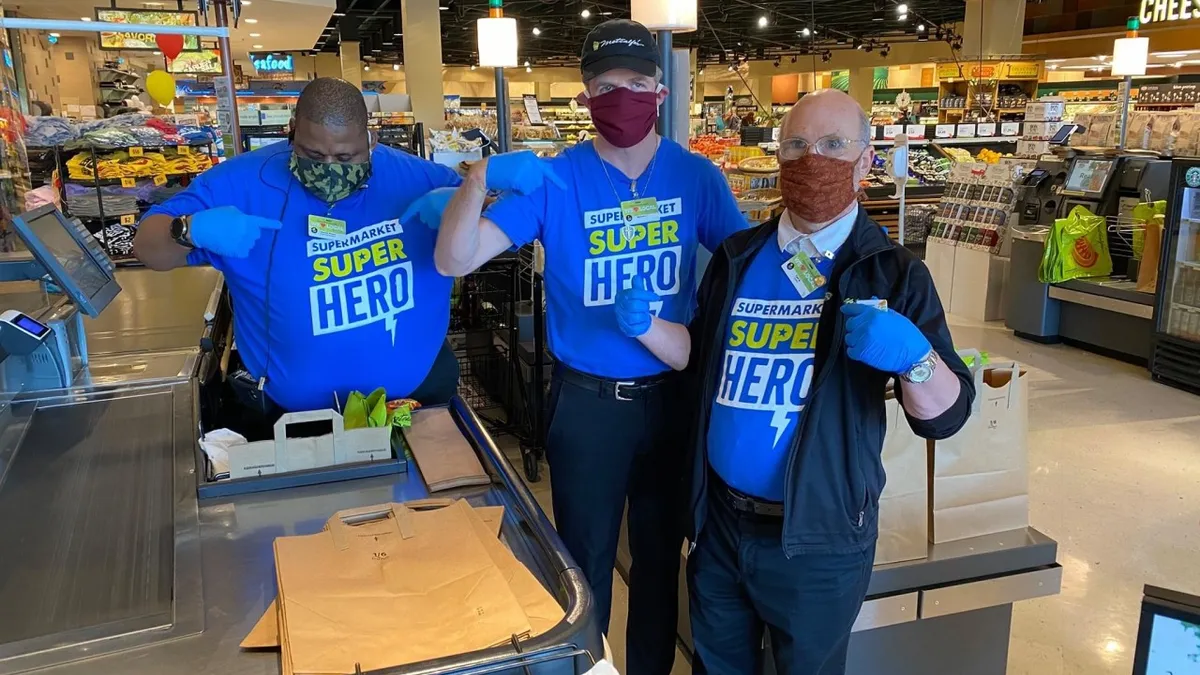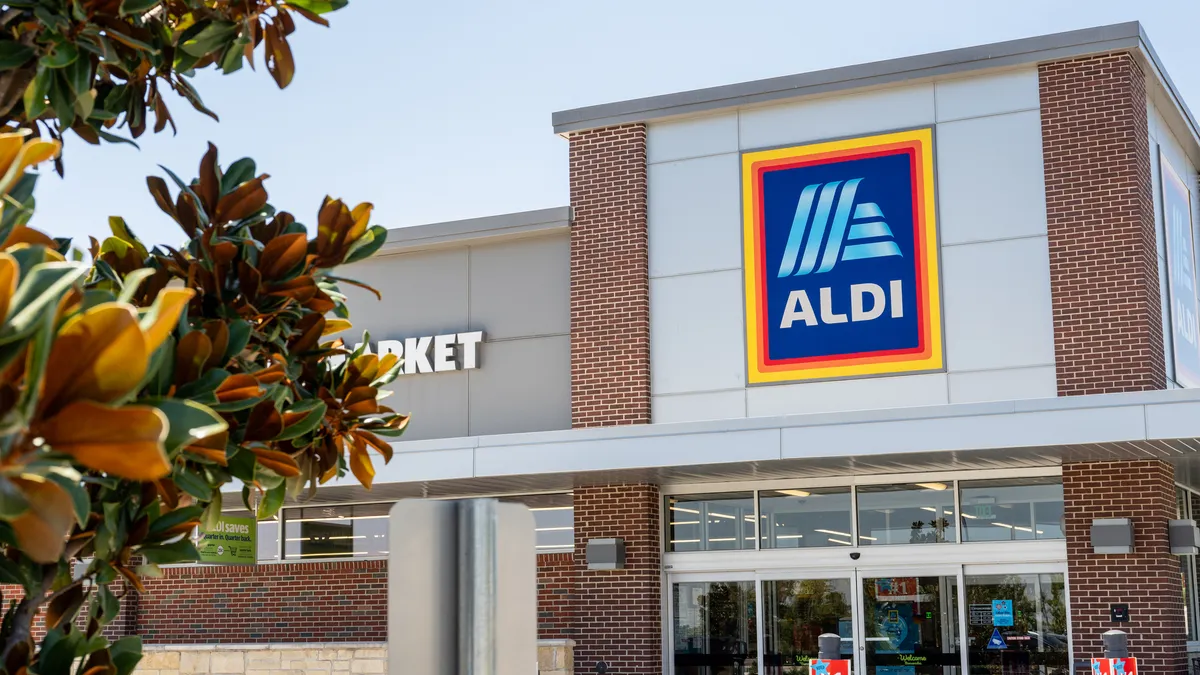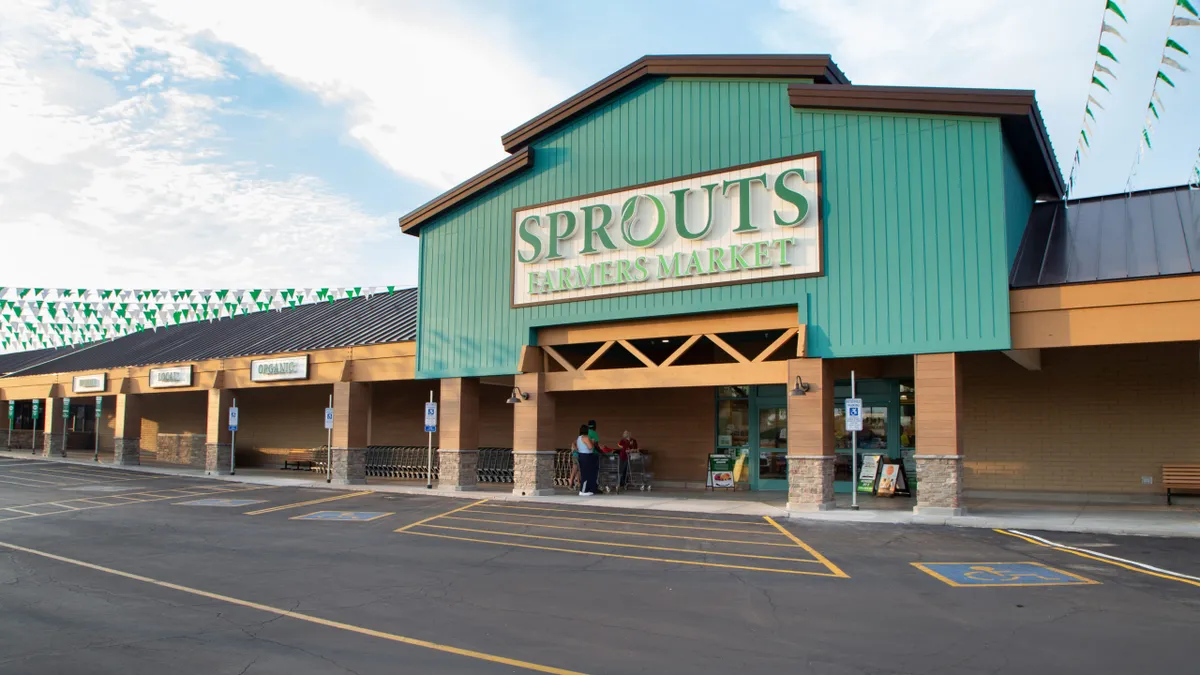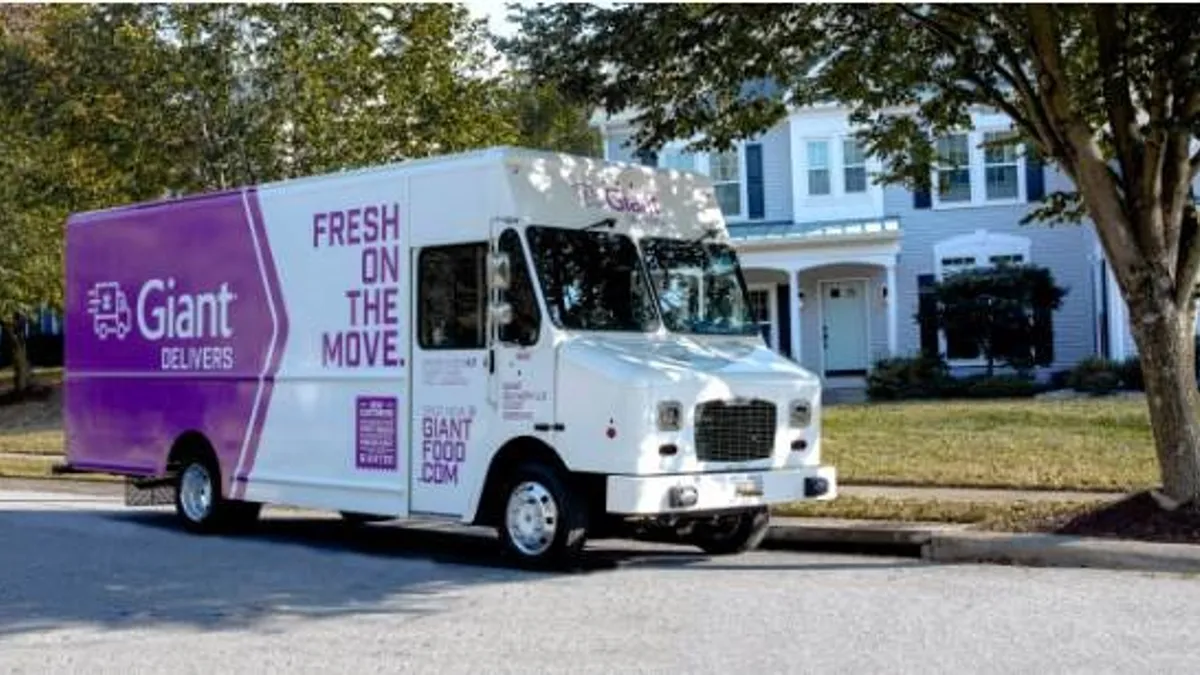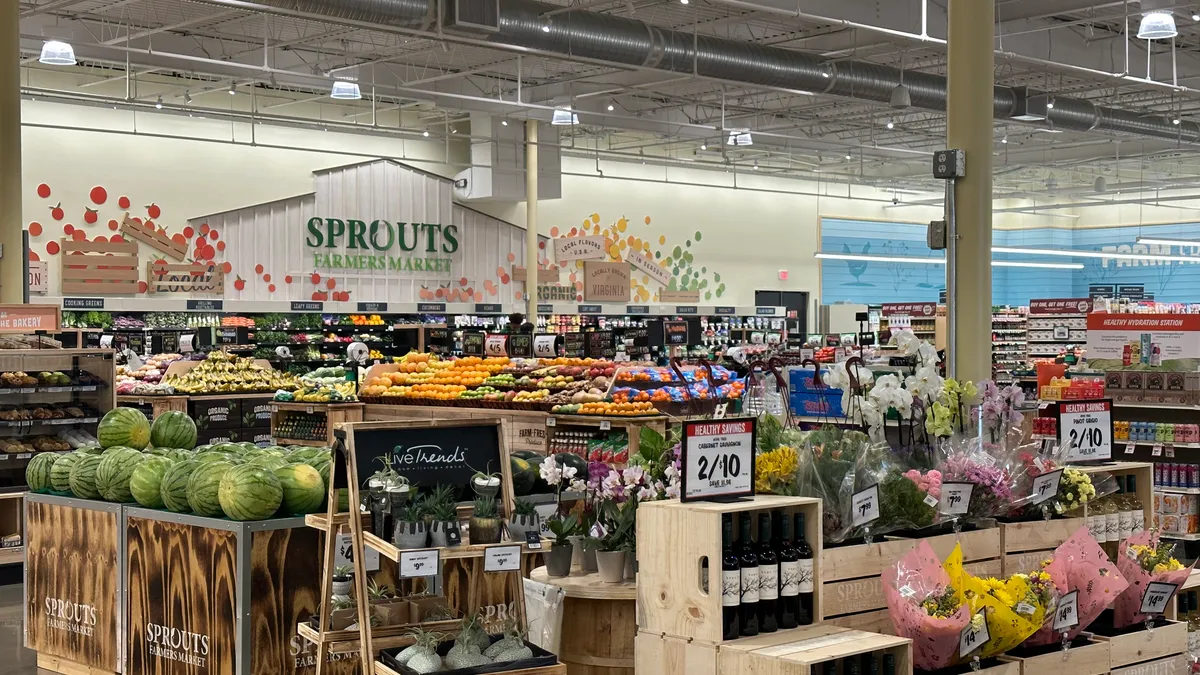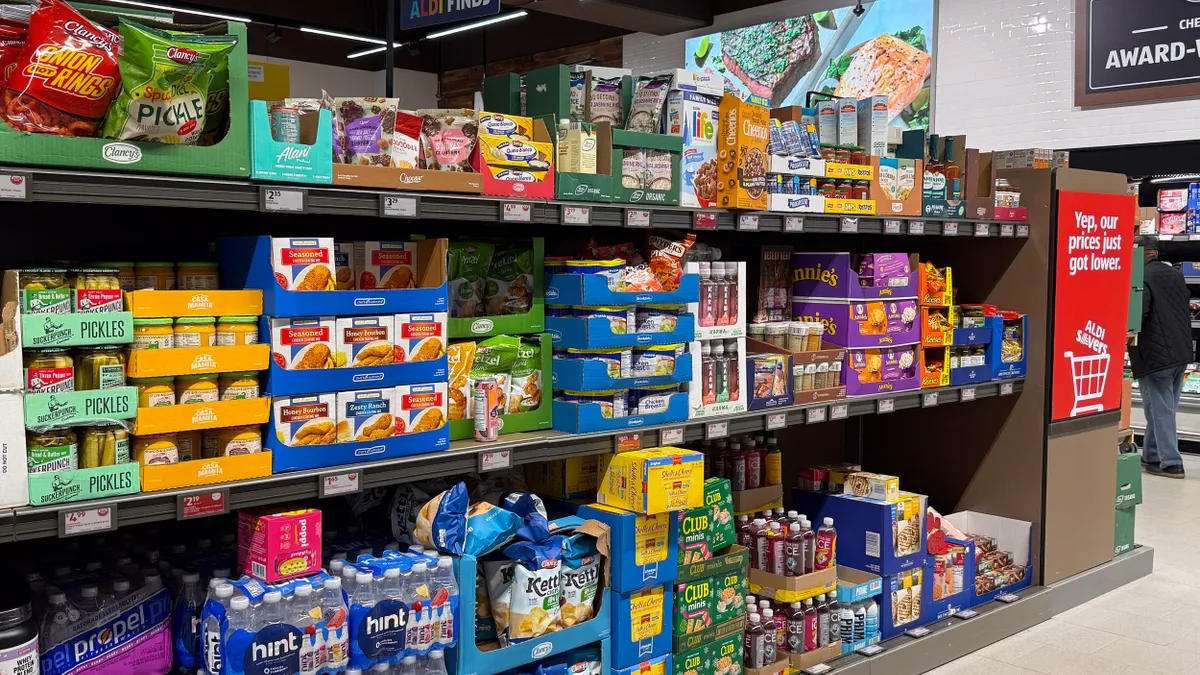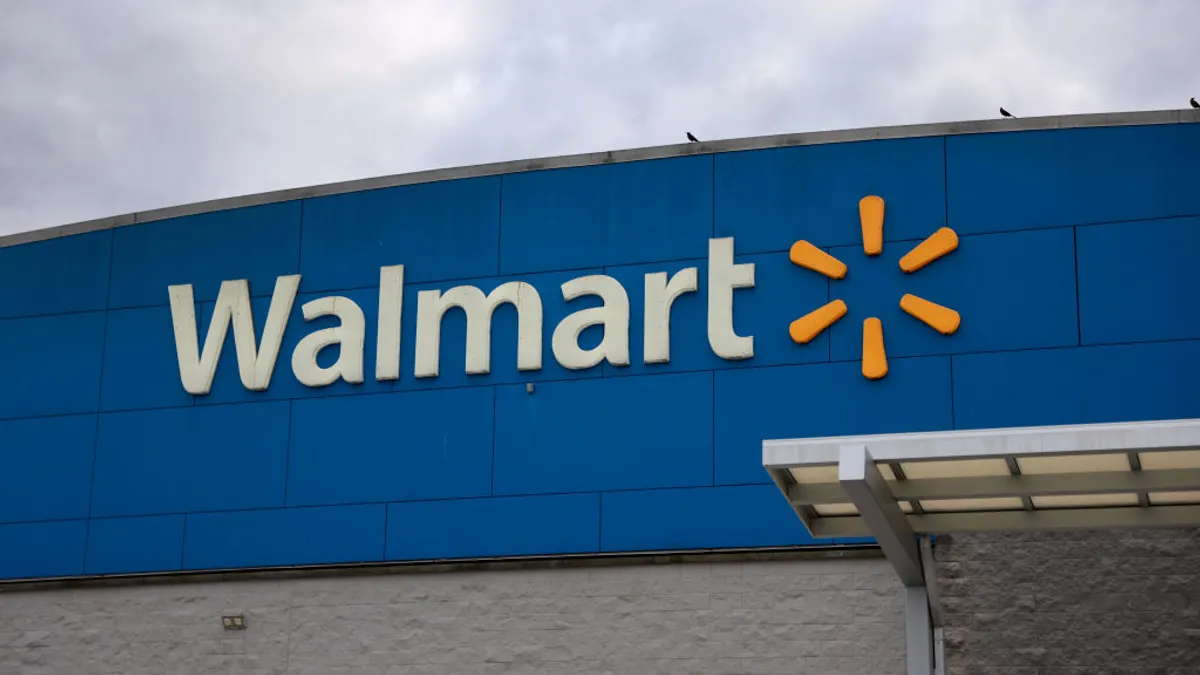This is the third story in a three-part series examining the relationship between grocers and their workers.
Grocers often struggle to hire and retain workers, and during the past two years they have found keeping their stores and other facilities staffed to be especially challenging.
But retailers aren’t simply waiting around for conditions to change. They’ve been fighting for frontline talent in a variety of ways as the pandemic continues to weigh on the business climate and workers’ expectations.
Metcalfe’s Market and SpartanNash are two examples of food retailers that have introduced new initiatives and taken other steps to make their work environments more attractive to employees.
Both have zeroed in on compensation and benefits. Metcalfe’s, a fourth-generation, family-owned grocer in Wisconsin, has leaned into its company culture and community impact, while SpartanNash, which runs more than 140 corporate-owned grocery stores across nine states, has focused on adding and revamping programs.
Here’s how the two companies have rethought their strategies for hiring and retention and the opportunities they see ahead.
How Metcalfe’s is creating a culture with ‘soul’
Employees at Metcalfe’s have come to expect surprises for their work anniversaries every five years, so the three-store Wisconsin grocer has had to get creative with the milestones.
To celebrate the recent 10-year work anniversary for Liz, a store manager, President and co-owner Tim Metcalfe told her there was a fire at a register and that she needed to grab a fire extinguisher.
“Everybody jumps out and goes, ‘Surprise!’ … and then my little speech is, ‘What Liz does for Metcalfe’s every day is she puts out fires,’” he recounted in an interview.
“If you're in there jumping in with your employees, that tells them that they're important and that that type of culture is very meaningful.”

Tim Metcalfe
President and co-owner
The anniversary milestone surprises are one of the “standout” benefits of working at Metcalfe’s, he said, and part of the culture the grocer has built to attract and retain workers — some of whom have stayed for decades.
“It’s two-pronged: it's celebrating the people but then it's also a recruiting edge of, ‘Hey, look how long people stay with us,’” said Amanda Metcalfe, the grocer’s director of employee development and Tim’s daughter.
Employee milestones are often celebrated on Metcalfe’s Facebook page or Tim’s personal Facebook profile. In June, the grocer highlighted the 15-year work anniversary for Bill, a cashier, noting his love for bonsai trees and Pomeranians, and in April the company celebrated the 35-year mark for Marvin with a sheet cake adorned with the Cubs logo and workers holding cardboard cut-outs of Marvin’s face.
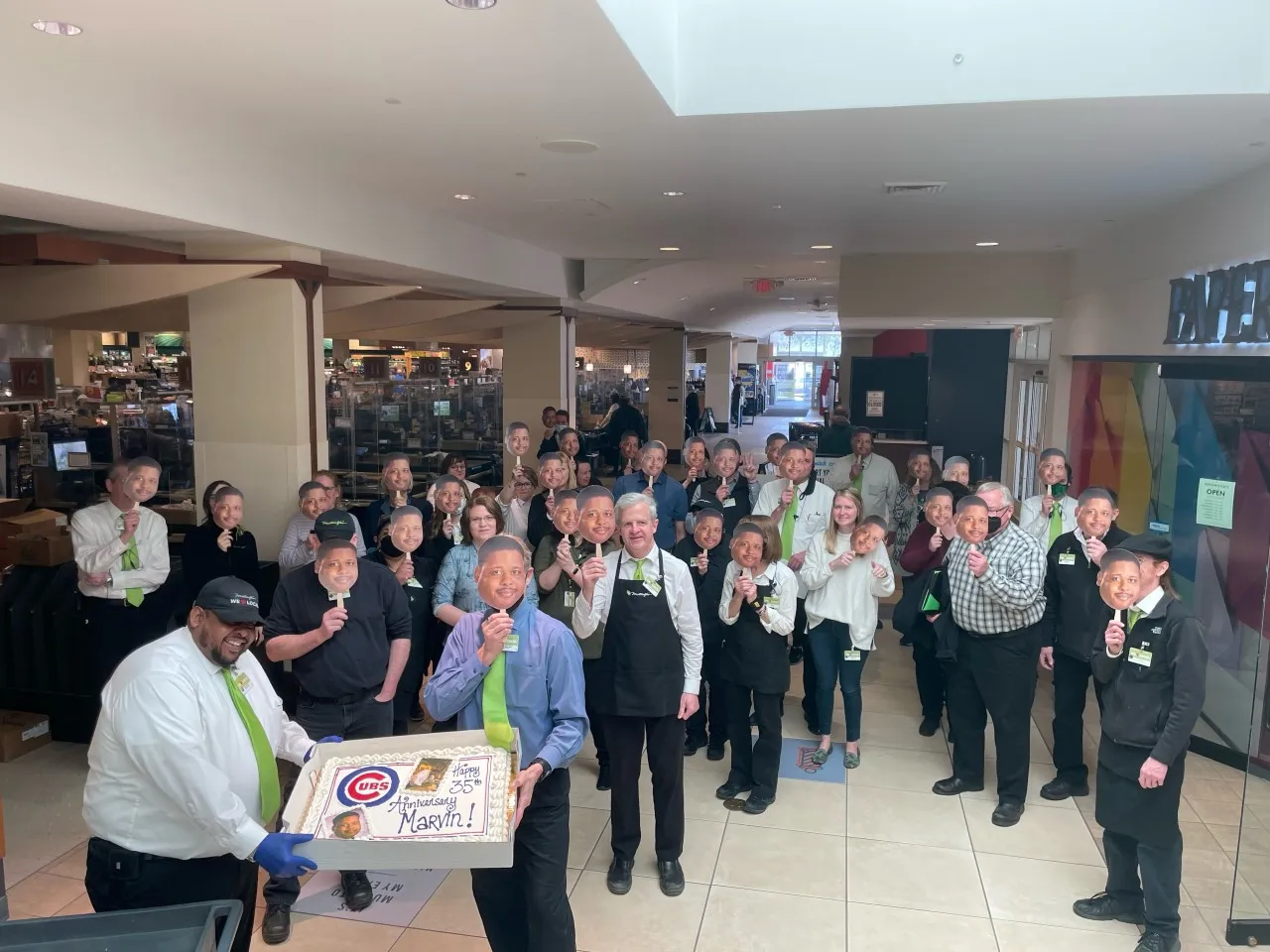
With the pandemic straining employment in the retail sector, Metcalfe’s has leaned further into flexibility, community belonging, pay and employee appreciation efforts. The top executives at Metcalfe’s, like Tim, have an open-door policy to hear people’s input and have helped out on the sales floor when stores are short-staffed.
“If you're in there jumping in with your employees, that tells them that they're important and that that type of culture is very meaningful,” Tim Metcalfe said.
The grocer has an employee appreciation week every summer, offers team-building events in the local communities where it operates and gives out employee appreciation T-shirts with new designs annually, Amanda Metcalfe said. Workers have gotten “Supermarket Superhero” shirts and been invited to wear holiday sweaters and Halloween costumes.
Online, a private Facebook group with more than 170 members for the grocer’s workers serves as a place for them to share about their lives outside of work.
“Employees, they want to work for a company that has a soul,” Tim Metcalfe said.
The 20% employee discount, which the Metcalfes claims is higher than the ones offered by their competitors, is also a standout benefit for workers.
While donation-related activities — such as diaper drives and sunflower sale fundraisers — and sustainability efforts are often consumer-facing, the Metcalfes noted that they can also boost employee morale. The grocer’s commitment to local and being 100% green-powered are the top responses when he asks how employees became interested in working for the grocer, co-owner and Director of Operations Kevin Metcalfe, who is Tim’s brother, told Grocery Dive in the fall.

To encourage retention and promote flexibility, the company has offered employees time off to figure out life challenges and hopefully have them return to work. For example, Metcalfe’s offered an employee who was dealing with family issues a 30-day leave.
“Keeping that relationship with people as much as we can and being flexible with people, I think is really huge,” Amanda Metcalfe said.
In January, Metcalfe’s switched to an HR platform that allows employees to exchange shifts with each other and extends shift scheduling to let people plan more ahead of time.
With human resources becoming “much more important” during the pandemic for the grocer, Metcalfe’s is ramping up investments in its HR department, Amanda Metcalfe said. The grocer recently hired an HR assistant, a recruiter and its third Society for Human Resource Mangement-certified HR generalist.
“We’re sitting much better on staffing levels and are focusing on what our holiday hiring needs to be,” Amanda Metcalfe said. “The recruiter has already been able to relieve our HR team allowing them to focus on employee engagement and retention efforts.”
The HR generalists are taking the burden of HR work off of the store directors and assistant director, the Metcalfes said.
“My kid’s home from school, my mom's not feeling well — whatever the issue is, a generalist is trained and adept at dealing with all these different types of issues,” Tim Metcalfe said.
With starting wages ramping up, Metcalfe’s has found it needs to tweak the starting rate for some of its current employees to catch them up on the salary progression scale.
“We go looking for people that are at risk or severely under scale and then we work our way through the system to make sure that they're on-scale or close to scale,” Tim Metcalfe said.
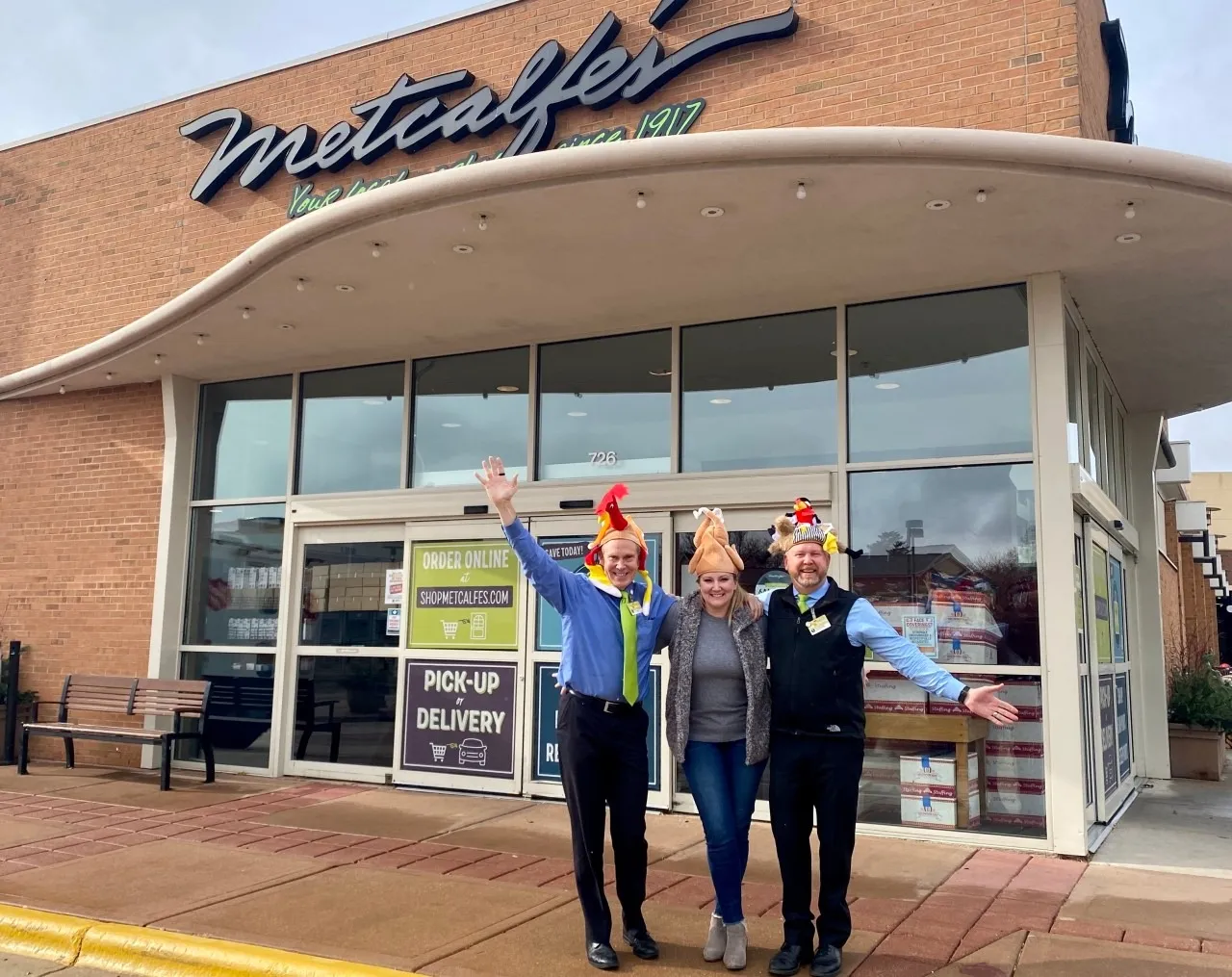
Metcalfe’s has a list of additional benefits it’s exploring. Adding pet insurance is under consideration, they said. Metcalfe’s, which has a 401(k) program with a company match of up to 5%, knows some of its workers are more focused on paying their student loans off than saving for the future. The company is also exploring offering repayment plans that can help them with those loans, the Metcalfes said — an offering that may be more attractive and beneficial to younger employees.
The grocery chain is also looking into the employment predictor feature of its new HR platform to better manage wages. The software uses artificial intelligence to determine if someone’s employment is at risk. For example, a recent move that lengthens commuting time or sudden drops in 401(k) contributions can indicate a person may want to leave the company, the Metcalfes said.
Going forward, Metcalfe's is also working to get better at helping workers find new opportunities without leaving.
“We have people who have dabbled in a bunch of different departments [and] tried different things,” Amanda Metcalfe said. “We have people that progress up into more of a management position. And then we have people who've just done the same thing and that's what they love to do.”
She continued: “We could do a better job of mapping some of those things out and showing people what the options are. I think that's an opportunity for us.”
How SpartanNash is fighting the ‘war for talent’
Hiring and keeping workers became so difficult for retailer-distributor SpartanNash last year that its CEO has invoked battlefield rhetoric to describe it.
“We are facing a war for talent,” Tony Sarsam said during an earnings call last June.
He noted at the time that the company had more than 4,000 open positions across its stores, warehouses and other facilities. To further underscore the dire circumstances, Sarsam said that a career fair one of the company’s stores took part in expected 500 applicants, but only four showed up.
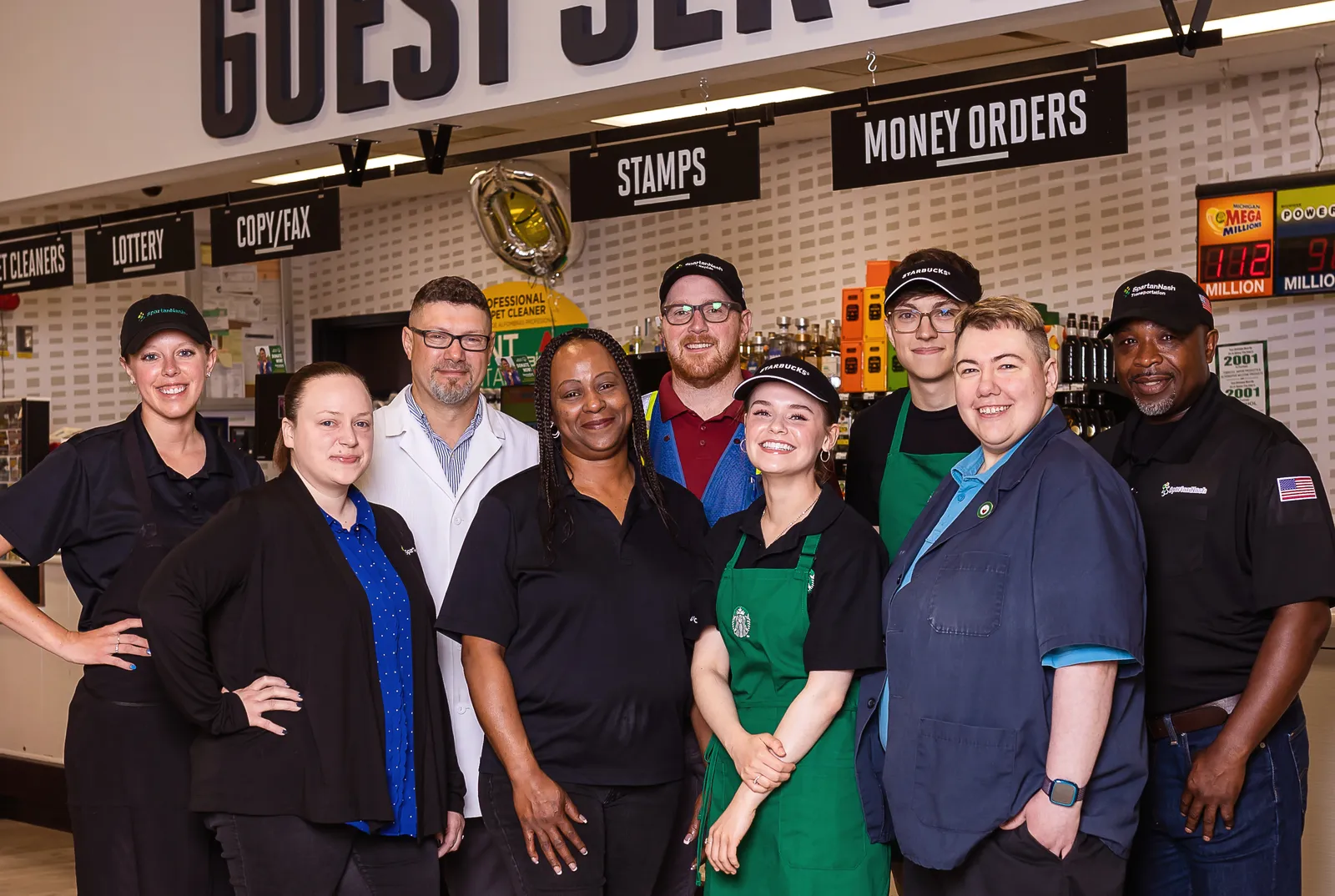
SpartanNash is still contending with a bruising labor market. Mike Koppenol, SpartanNash’s vice president of human resources, said the company is still having trouble finding and retaining truck drivers, warehouse workers and store associates. “Staffing and retention are ongoing challenges and will remain a key area of focus for the company,” he said in an email interview.
But it has taken numerous steps over the past two years that have turned the tide in the company’s favor.
“We’ve been happy to see turnover rates improving due to our strategic investment [in wages and benefits],” said Koppenol.
Like many other retailers, SpartanNash has increased wages by an average of 10% across the company for entry-level employees, Koppenol noted. It also expanded its year-end bonus program for salaried employees and increased the employee discount to 10%.
To further entice new workers and retain existing ones, SpartanNash has revamped its benefits and added new ones. This year, it introduced four weeks of paid parental leave for birth and adoptive parents. It has also added more flexibility to its paid-time-off policy, Koppenol said, and started a school leave program that lets workers stay on as employees while they pursue their studies.
As health concerns have increased during the pandemic, the company recently shortened the number of days after which new employees become eligible for healthcare benefits, and consolidated its disability benefits while also offering an equal or better benefit for hourly workers.
SpartanNash also revamped how it goes about recruiting candidates. It started hosting “experiential” job fairs where participants take part in games that simulate what it’s like to work in one of its stores or warehouses. It also introduced preview videos meant to show people what they can expect on the job before they apply.
To streamline the application process, SpartanNash invested in technology that allows people to apply via text message and stepped up its engagement with prospective employees about company openings. “Our team has found that developing a more streamlined hiring process has been key for applicants,” Koppenol noted.
Along with turnover improving through these and other initiatives, job application flow was more than double the company’s normal rate as of early June, Sarsam said during SpartanNash’s first-quarter earnings call.

At the same time that it’s added and revamped benefits, SpartanNash has also tried to build a sense of community and improve how it communicates with current and potential workers. Last year, it launched virtual town halls for the entire company and made its executive leaders more visible through “field town hall visits.”
The company is hoping to improve its ability to bring promising talent to the company — and encourage people to stay with it. An internship program that SpartanNash runs with local universities, including historically Black institutions, converts more than 60% of participants to full- or part-time employment after completion. Earlier this year, the company launched two educational programs aimed at developing talent across company leadership as well as its frontline employees.
Koppenol said that SpartanNash has “elevated the importance of manager support,” requiring store and warehouse leaders to hold quarterly check-ins with workers to discuss their performance, set goals and help identify career opportunities. SpartanNash also has an internal social media channel, SpartanNash Go, that shares information on how to apply for positions.
Along with elevating workers and boosting retention, promoting career opportunities is also helping SpartanNash draw interest from prospective employees.
“Career opportunities have become a priority message for recruiting tools and communications,” said Koppenol.



